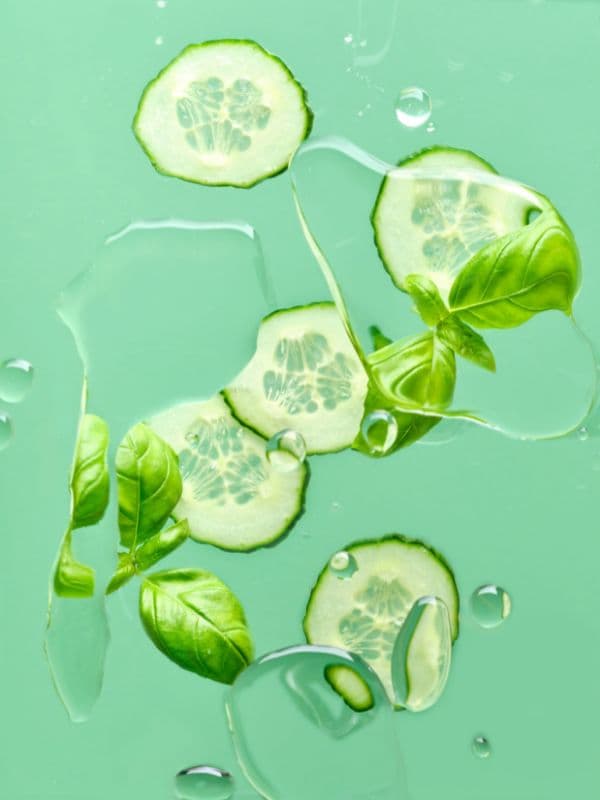
What if everything we thought we knew about nutrition and hydration was incomplete?
We are taught that essential nutrients are the pillars of human survival. But what if there was a missing piece in nutrition facts? A set of bioactive compounds that, while not yet classified as essential, are proving to be just as crucial for health and longevity?
As we celebrate Nutrition and Hydration Awareness Week (March 17–23, 2025), it’s time to rethink hydration and nourishment beyond just water and macronutrients. At BeatNaturally, we believe that phytochemicals—plant-derived compounds with extraordinary health benefits—are the future of optimum nutrition. With mounting scientific evidence, it’s only a matter of time before they are recognized as essential nutrients. This blog explores the connection between phytochemicals, nutrition, and hydration, shedding light on why these bioactive compounds deserve more attention in our dietary guidelines.
Understanding Phytochemicals - The missing link in nutrition and hydration:
Phytochemicals are naturally occurring compounds found in plants that help protect them against environmental threats like pests, UV radiation, and diseases. For humans, they offer a plethora of health benefits, including anti-inflammatory, antioxidant, anticancer, antidiabetic, immune-boosting properties etc1.
Some well-known phytochemicals include:
- β-carotene (found in Carrot, Papaya, Spinach etc.) – known for enhancing immunity.
- Anthocyanins (found in Blueberry, Cranberry, Pomegranate etc.) – known for preventing inflammation, cardiovascular diseases and allergies.
- Lignin (found in Flaxseeds, Brazil nuts, Broccoli etc.) – known for their aid in lowering the risk of cancer.
Phytochemicals and Nutrition: Beyond Essential Nutrients
While essential nutrients like vitamins, minerals, proteins, lipids, carbohydrates and water2 are required for human survival, phytochemicals enhance overall health and disease prevention. Recent studies suggest that diets rich in phytochemicals contribute to longevity and reduced risk of chronic diseases3.
1. Synergy with Vitamins
Carotenoids are plant chemicals that the body converts into vitamin A4. Both Vitamin C and Vitamin E are considered phytochemicals, highlighting their dual role as nutrients and bioactive compounds5.
2. Role in Gut Health
Phytochemicals nourish the gut microbiome, helping beneficial bacteria thrive. Polyphenols in green tea has been found to enhance gut health by promoting beneficial bacteria like Lactobacillus and Bifidobacterium6.
3. Phytochemicals and Chronic Disease Prevention
- Resveratrol in grapes is linked to improved heart health7.
- Curcumin in turmeric is widely studied for its anti-inflammatory effects8.
- Sulforaphane in broccoli has been researched for its potential in cancer prevention9.
Phytochemicals and Hydration: Beyond just drinking water
What is hydration? It isn’t just about drinking water—it’s also about how well our cells retain and utilize water. Many phytochemical-rich foods, such as cucumbers and watermelons, naturally hydrate the body while delivering essential antioxidants and electrolytes.
Emerging research suggests that quercetin, a flavonoid found in moringa supplements, apples and onions, may enhance cellular hydration by regulating aquaporins—water channels within cells10. This means phytochemicals could play a direct role in cellular water balance, preventing dehydration at a microscopic level.
The Future of Phytochemicals in Nutrition Science
As we recognize the importance of Nutrition and Hydration Awareness Week (March 17–23, 2025), it’s time to expand our definition of essential nutrients.
Phytochemicals are no longer just an afterthought in nutrition science. They
- Enhance vitamin function
- Improve gut health
- Prevent chronic diseases
- Aid in cellular hydration
At BeatNaturally, we advocate for a holistic approach to nutrition—one that embraces phytochemical-rich foods as vital for health. Whether through hydration, enhanced nutrient absorption, or disease prevention, phytochemicals are paving the way for the next frontier in nutrition science.
The question is no longer if phytochemicals will be considered essential—but when. #NutritionAndHydrationWeek #BeatNaturallyBritain #Phytochemicals #BeatNaturally
References
- https://pmc.ncbi.nlm.nih.gov/articles/PMC9862941/
- https://www.ncbi.nlm.nih.gov/books/NBK554545/
- https://www.sciencedirect.com/science/article/pii/S0002916522033500
- https://ods.od.nih.gov/factsheets/VitaminA-HealthProfessional/
- https://www.cancer.gov/publications/dictionaries/cancer-terms/def/alpha-tocopherol
- https://pmc.ncbi.nlm.nih.gov/articles/PMC8747136
- https://pmc.ncbi.nlm.nih.gov/articles/PMC4882663/
- https://pmc.ncbi.nlm.nih.gov/articles/PMC8572027/
- https://pmc.ncbi.nlm.nih.gov/articles/PMC10313060/
- https://pmc.ncbi.nlm.nih.gov/articles/PMC4539495/
